Daring to Dream of a New and Better World -Q&A with Yaron Barzilay
Article By Manjula Nanavati
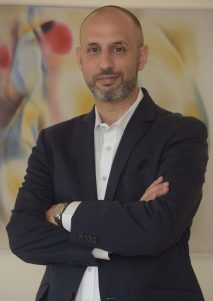 Tall, trim and relaxed in any environment, Yaron Barzilay smiles easily, but weighs his words very carefully. Understated and well-read, he punctuates his conversations unexpectedly, with an incisive colloquial humor that betrays his acute sense of the current socio-economic and political climate, and his capacious grasp of India’s history and mythology.
Tall, trim and relaxed in any environment, Yaron Barzilay smiles easily, but weighs his words very carefully. Understated and well-read, he punctuates his conversations unexpectedly, with an incisive colloquial humor that betrays his acute sense of the current socio-economic and political climate, and his capacious grasp of India’s history and mythology.
Professionally, Yaron Barzilay is the Managing Director of IDEX India – a leading diamond trading platform for professional diamond traders worldwide.
Yet what really lights up his life, is his passion for philosophy, and the unassailable belief that it has the ability to bring about profound and sustainable change.
To this end, in 2006, he founded New Acropolis Cultural Organization in Mumbai, a non-profit organization represented in over fifty countries, established on the foundations of Practical Philosophy and Universal Fraternity. Its goal is threefold; to encourage the love of wisdom through the comparative study of philosophies, religions, sciences, and arts; the development of human potential through ethical principles; and the integration of each individual as an active and conscious part of society.
Few people know that Yaron is a certified specialist of Eastern and Western Philosophy, including History, Symbolism, Moral Philosophy, and Psychology. He has authored several investigative articles and spoken at a variety of forums, exploring timeless and universal philosophical concepts as relevant to modern daily life.
Editor-in-Chief of The Acropolitan Magazine, launched to inspire young adults in Mumbai, he has also spearheaded a number of initiatives to foster social and ecological responsibility, demonstrating that promoting humanitarianism is the most constructive means to tackle societal challenges. Under his leadership, New Acropolis has successfully partnered on initiatives with Brihanmumbai Municipal Corporation (BMC) to execute volunteer driven civil beautification and cleaning drives, and presented awareness campaigns and exhibitions at Kala Ghoda Arts Festival, Jehangir Art Gallery, National Centre for Performing Arts (NCPA), and National Gallery for Modern Art (NGMA).
G2 met with this dynamic, progressive changemaker, to find out what inspires him, how he stretches time to accomplish so much, in such diverse fields, and how he bridges East and West, professionally, personally, and most of all, philosophically.
As Yaron warmed to his favorite subject, one could not help being drawn to the quiet strength of his moral convictions, applaud the magnitude of his commitment to serve, and be inspired by the intensity of his empathy for mankind.
GLAMOUR AND GLORY: The name New Acropolis is intriguing. What does the name and the institution stand for?
YARON BARZILAY: Acropolis literally means ‘higher city’’, and the idea represents the place where we look to for inspiration, our higher thoughts, the source of Beauty, Truth and Justice. In Ancient Greece cities were built around the concept of an Acropolis, a citadel which housed a temple, a sacred theatre, a place of justice, and around this was the Agora where the citizens lived their daily lives. We find something very similar in other ancient traditions too. The symbolic meaning of the legendary Hastinapura, which literally translates to the City of Elephants (a symbol of wisdom), was a reminder to its citizens of what should be their primary aspiration.
Acropolis then refers to both a physical place that embodies the higher aspects of our lives, as well as an inner higher place within each and every one of us.
And to me, this is exactly what we are missing today. We are so consumed with survival in the day-to-day engagements that we forget the central aspect of why we are here at all.
New Acropolis is a School of Philosophy in the classical manner. That is to say our purpose is not to learn about philosophers and their philosophies, but to learn from them. What is crucial is the idea of implementation, rather than the theory per se. We must learn from our past, not just from the traditions of India or Greece or Rome, but the combined heritage of humanity, and then implement that consolidation of ancient wisdom in the present, in order to create a bridge to our future.
It was schools such as these that were able to re-invigorate culture and civilization through past ages.
G2: But in a world replete with technology, where information and knowledge is literally at our fingertips, what is the relevance of a classroom to young adults on the fast-track of their careers?
YARON: The first point I would like to make is that we must recognize that technological advancement, while allowing us to live and learn better, is a tool that serves a certain purpose. But regrettably there is the danger of it transforming from an instrument meant to serve us, into a master. It is extremely important to learn to discern between tools and their purpose.
Therefore, what I really would like to touch upon is the purpose of education, rather than the methods we might employ. Is education synonymous with the gathering of information? Or should education also allow us to discover ourselves? The etymology of the word comes from the Latin educare which means ‘to bring out’, implying that there is already something essential within us that needs to be drawn out and brought to light. This needs to be the guideline for a beneficial education; not just absorbing more knowledge and acquiring more skills. Instead, we must ask, for what purpose is this knowledge and these skills?
Here again we come to the role of philosophy, which pushes us to ask those very basic questions that will define how we live: Where do I come from? Where am I going? What is the purpose of life? To think that these are questions that we can leave to tackle at some hypothetical ‘later’ is completely illogical. To initiate these questions, ones that we all have, is philosophy. To search, to learn, to engage with enquiry, to question, to find answers that will lead you to new questions…isn’t that what education is, to evolve?
And it’s not exclusive to a classroom. The application manifests as an ability to volunteer, to be humane, to care for the world. This cannot happen because someone lectures you. You need to discover it within yourself, which will only happen through an intense, internal investigation. Starting in a classroom leads to a better understanding, which in turn allows you to take it forward in any way you want.
Philosophy contains the idea of wisdom. The classes we offer at New Acropolis are meant to initiate this process. Its purpose is to take the philosophy out of the classroom, and into your life.
G2: One of the essential principles of New Acropolis is the comparative study, where you bridge the seemingly disconnected branches of Arts and Sciences. What is the value that we can draw from this?
YARON: Unfortunately, this is a characteristic of our times, the emphasis on specialization. But to be a specialist one needs to focus on one thing and segregate it from everything else. To aid this, our education system separates everything into different silos – physics, chemistry, biology, mathematics, history, geography, art. Yet life is not dependent on any one skill or expertise. Life is everything.
And by seeing life from only one perspective, we are missing out, not just the whole picture, but the wholeness of life itself. So, the method of comparative study seeks to investigate the holistic approach to life, by emphasizing the connectedness of knowledge. If we only focus on life though the perspective of science and ignore art and philosophy, we will understand in depth the how of life, but very little of the underlying why.
Without searching for deeper meaning, beyond the limitation of forms, we may be losing what Saint-Exupery called ‘the essential that is invisible to the eye’. And how do we engage with this subtle essential? By perceiving the common ground that speaks to us though myths, unifying thousands of years of ancient traditions, through symbols, which speak of common realities, similar shared experiences and universal truths.
This does not mean that everything is the same, but that everything evolved from a common origin.
G2: You have lived, studied and taught in both Israel and India, interacting with people from both western and eastern cultures. Is there a difference in their approach or sensibility to philosophical thought?
YARON: By its very nature, Israel is a mix of people and cultures from all over the world. My mother comes from Poland, and is a holocaust survivor, and my father’s family is originally from Yemen, though he was born in Israel. To me, that separation between East and West has never been so clear-cut. Moreover, if you see our planet as a globe, then East and West mean nothing, because wherever you stand, relatively speaking there is East on one side, and West on the other [laughter…].
It is true that there are differences: we look a little different, we talk a little differently, we have different traditions. But if we turn our attention to the common ground instead, then it is also true that we are all human; we live in one world, and what we do in one part affects the whole. That to me is far more essential, and a far more pertinent outlook, rather than the differences. I’m not saying they do not exist, but that they are not of foremost importance.
G2: Today however, we are living in an increasingly divisive world where differences are unfortunately and sometimes quite violently highlighted. What can be done to mitigate this problem?
YARON: Yes. I agree with you in this observation that we live in a world that seems to be moving more and more towards separation, and conflict. It is Ironic that we talk of a global world where communication is at its peak, and yet it seems harder and harder to co-exist.
One answer or solution to this is the concept of fraternity. But it cannot remain just an ideology or a Facebook campaign that collects likes. It is not enough to understand something, to agree with something. We need to live it. We need to discover it as a profound truth of life itself. Real fraternity can only come if I bring down the illusionary walls of separation that lie within me. If I don’t do that, I will only talk about fraternity, but I will not be able to resonate with someone else’s joy or fear or needs. We must develop empathy, an understanding of the other, and go beyond the limitations that make us obsess over ourselves. Without empathy, how can we make the world a better place?
A good exercise that I like to offer is to visit a Mumbai train station at rush hour, where you can literally see thousands of people. Or observe a tall residential tower, where you can see hundreds of living rooms, and imagine that inside each one, there are people and families similar to your own. We don’t need to be ingenious in order to understand that their day-to-day concerns are not so very different from our own.
Yes, our lives are pressured, but as Seneca reminds us, “we are not ill-supplied of time but wasteful of it.” We have exactly the right amount of time available to us if we utilize it correctly. We have to create the opportunity to go beyond our self-interest. I don’t mean we need to ignore who we are, but in fact we need to become who we really are. We are a force of life, we are a part of life. These masks we wear today, of gender, age, and nationality are true…yes…but this is only part of the whole truth. Fundamentally we are all human beings. Perhaps we should actually say we are all living beings… sharing our planet with so many others. When we are able to rise above the temporary definitions that we label ourselves with, we naturally develop empathy; naturally we act with the generosity of a volunteer, naturally we live as philosophers.
That’s our impact. That is what I would say a school of philosophy in the classical manner hopes for.
G2: In a world where hunger poverty, pollution are such pressing concerns, can philosophy really provide an answer.
YARON: The answer lies in your question. Why is the world full of hunger, poverty and pollution? We seem to have the requisite knowledge and technology, yet we are no closer to solving these issues. That is exactly why we need philosophers.
G2: To change our way of thinking?
YARON: To change the way we are. People understand what is the right thing to do in order to solve many of the world’s problems. But they don’t follow through with that. This dichotomy between what we know to be true, and how we continue to act, is exactly the problem we need to solve.
Philosophy is not, as most people think, an endless intellectual debate, detached from solving practical problems. On the contrary, it is an intelligible perspective of life that expresses itself in everything we think, and feel, and do. It is the ability to honor thought with action. It is the ability to live and put into practice what I believe to be right, not only for me, but for others, and yes, for the rest of the world. It is the ability to view myself not as a separate unit, engaged only with my own survival or my short-term benefit, but as part of a whole symbiotic relationship with all of life. Philosophy without altruism is incomplete, and altruism without philosophy is not possible.
To me philosophy is really an adventure; to live by the truth as I understand it, is always a challenge. To act for the benefit of others by overcoming one’s own propensity towards selfish interest is a challenge that philosophy can help one overcome.
G2: But when one is so bogged down by the individual struggles of everyday life, in what way can philosophy be of practical help?
YARON: It is true that when a person is hungry he is consumed by just the need to survive. But for many of us, it is up to each individual to choose how much time to allocate to all the different priorities and obligations that life throws up. It is time to really dedicate ourselves to things we value. It is time to understand that philosophy must become a way of life.
It cannot be that one aspect of you sits through a philosophy class and then another completely divorced aspect of you deals with the day-to-day predicaments of your life. In fact, it is exactly in how we deal with the difficulties that is the application of our personal philosophy of life. So why do we need time for that? We can practice philosophy at home, when we are at work, when we sit with a friend, and yes when we face obstacles in our life. Life is where philosophy expresses itself. A class for two or three hours a week can orient us, but how we deal with life is eventually based on the way we recognize ourselves, and the meaning we give to life.
Victor Frankl said in his book Man’s Search for Meaning that we need to stop asking about the meaning of life, and instead think of ourselves as those who are being questioned by life – daily and hourly.
That is what I mean by living philosophy.
G2: Establishing a suitable platform, creating a fitting bridge to a better future requires voluntary service and a change of mindset. What is the answer to a cynical generation wanting to know what’s-in-it-for-me? Or on the other hand, many who are idealistic and full of hope, but discouraged by the enormity of the effort required for sustainable change?
YARON: Volunteering and service is the natural expression of a true philosopher. It cannot be forced. Natural empathy cannot be imposed. But I think it is important that we should not blame the new generation. It is not their fault; it is the fault of the world they have been born into, what this world is preparing them for, and consequently what they understand as a way of life.
But I would take inspiration from the life of Gandhiji and Confucius. Though it may sound a little naïve, I do believe that sometimes what we call naivety may be profound truth. Change can only begin with us, from us, and by us. We need to be the change we want to see. This philosophical realization underlines the essential role of philosophy. It is a path of self-discovery, of the realization of the unity, of identification with the whole, of developing empathy towards all.
It is essential to share this magnificent aspiration: we can change world, if we can change ourselves.
G2: As the world slowly embarks on learning how to revitalize itself in a necessary renaissance of sorts, what can India offer or contribute?
YARON: India has its undeniable uniqueness, its colors, its traditions, its art, its philosophy.
Ever since I was a child, I was drawn towards India. I could not travel until I had finished High School, but I had this aspiration for an inner search fueled by the idea of what India symbolized. India is a complex diversity of languages, traditions, religions and philosophies that are thousands of years old, maybe even more ancient than historians have conventionally acknowledged. Through time it has always been a land of seekers, wise men, disciples, and philosophers – lovers of wisdom, who found truth and inspiration and expressed it in literature, poetry, song, dance, sculpture, art, and architecture. Millennia have been spent sharpening ancient wisdom, burnishing the richness of ideals, and investigating systems of thought that lead to self-knowledge, transmutation and truth. That impact of wisdom still exists today. You have only to open your eyes to Indian art and philosophy, gaze at her ancient monuments and sacred temples to experience it.
By the time I had been here just a few months, I came away with the idea that I would find the true purpose of my life through philosophy. That was the gift that India gave to me. And that is a precious gift that India can share with the world: that life implies constant change and growth, that your own evolution proceeds from the pursuit of the essential reality that is beyond what we see, that man has a purpose, a purpose that lies within him, and to discover and conquer that path is his principal endeavor.
I’m not saying that India is an exclusive place to engage with ancient wisdom. But what I am saying is that this land we call India is soaked with it, and at New Acropolis, as Indians, we can take a step forward and share it with the world.
Image References
Image Courtesy : G2 Glory & Glamour
Permissions required for the publishing of this article have been obtained
Article References
First printed in G2 Magazine, Vol1 : Issue 4 2018. Reprinted with permission.
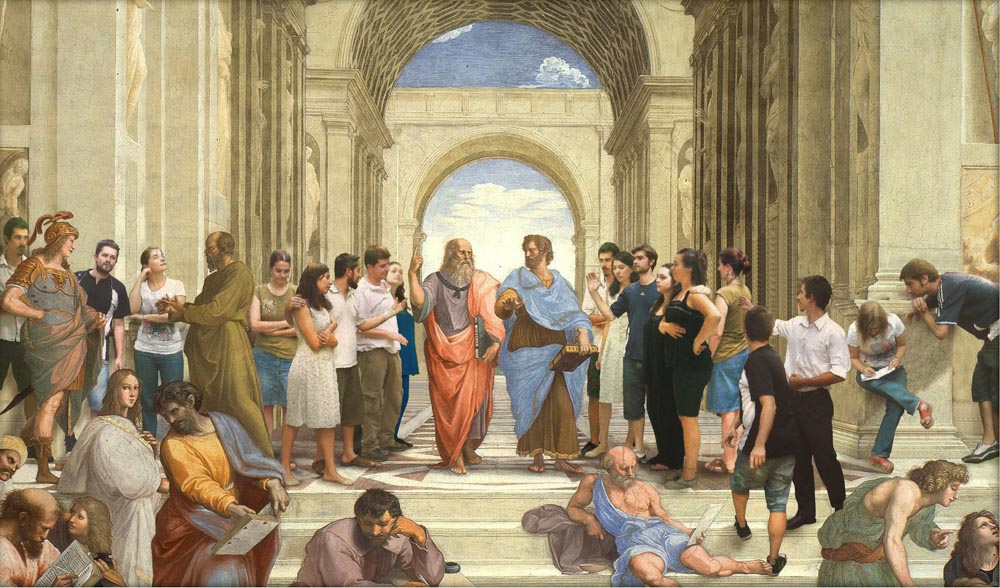
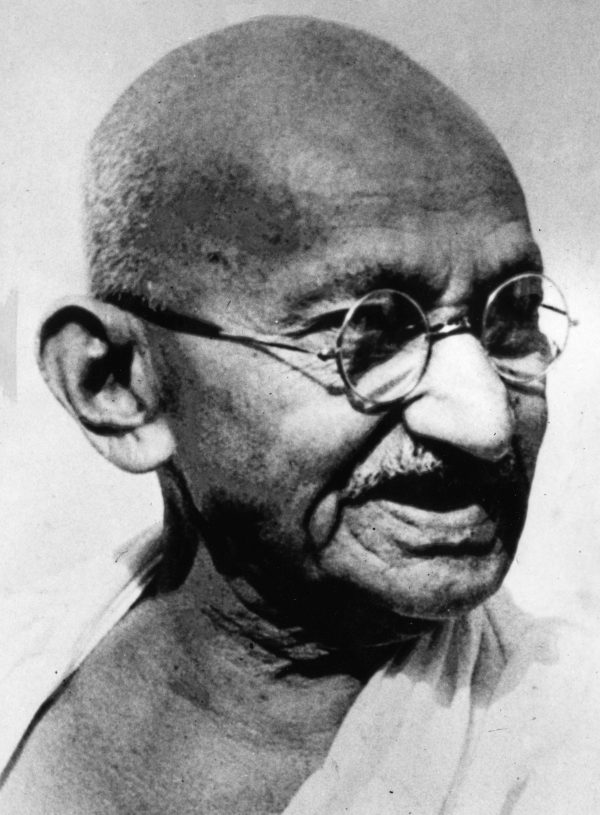
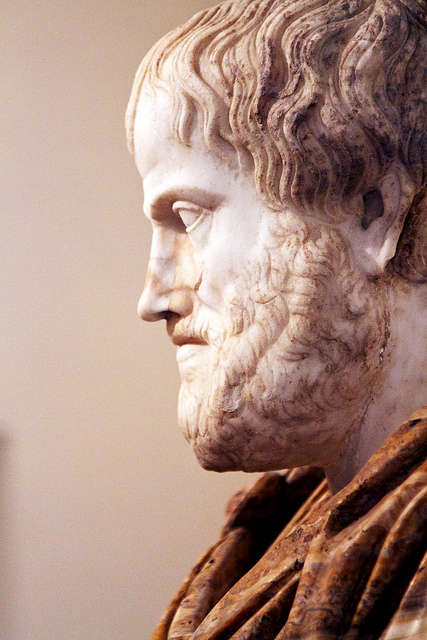
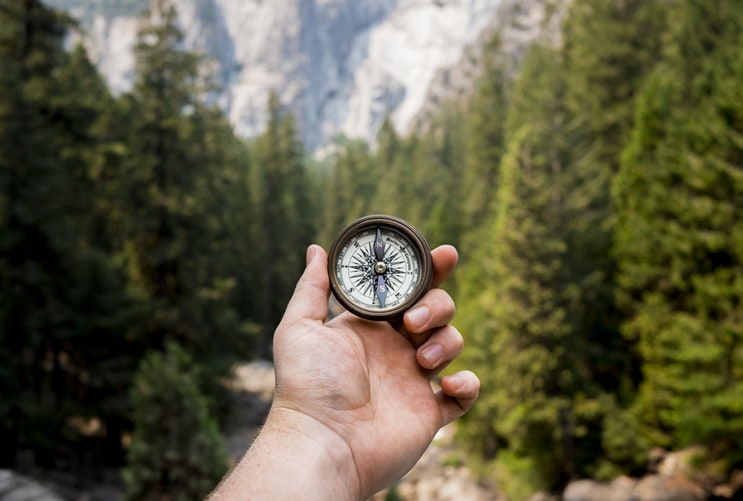
What do you think?